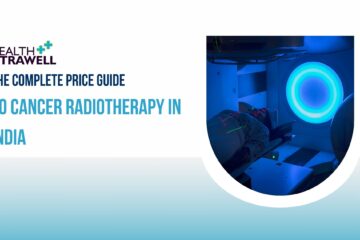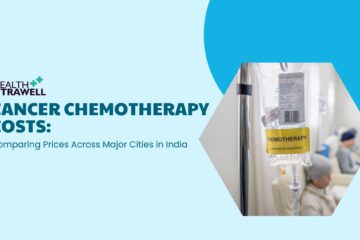Affordable ERCP in India: A Key Magnet for Medical Tourists!
ERCP Cost in India Vs. Developed Nations
Get ERCP Done in India with Health Trawell
Affordable ERCP in India: A Key Magnet for Medical Tourists! Endoscopic retrograde cholangiopancreatography, commonly known as ERCP, is a medical procedure that plays a vital role in diagnosing & treating conditions related to the pancreas, gallbladder, and bile ducts. ERCP cost in India is so affordable that this is becoming the main reason for the great influx of medical tourists to this land.
Affordable ERCP in India: A Key Magnet for Medical Tourists!
ERCP is a specialized medical procedure used to examine & treat issues within the bile ducts & pancreatic ducts. It involves the use of an endoscope, which happens to be a long, flexible tube having a camera on its tip that is inserted through the mouth and into the digestive tract. The endoscope allows a physician to visualize the bile ducts & pancreatic ducts on a monitor, enabling them to diagnose & treat various conditions.
Need for ERCP
ERCP is typically recommended for individuals experiencing problems related to the bile/pancreatic ducts. Common reasons for undergoing ERCP include:
- Gallstones: To remove or push back gallstones that have become lodged in the bile duct, causing blockages & pain.
- Pancreatitis: To diagnose the cause of recurrent pancreatitis or to treat blockages that may be contributing to the condition.
- Bile Duct Diseases: To investigate & treat conditions such as strictures, tumours, or infections within the bile ducts.
- Jaundice: To determine the cause of jaundice and alleviate its symptoms by clearing obstructions.
- Cancer Diagnosis: To obtain tissue samples (biopsy) or conduct therapeutic procedures for cancerous growths in the pancreas or bile ducts.
Risks
As with any medical procedure, ERCP comes with certain risks & potential complications. These can include:
- Infection: There is a risk of infection, albeit small, when introducing instruments into the digestive tract.
- Bleeding: Some patients may experience bleeding, particularly if therapeutic procedures like stent placement or tissue sampling are performed.
- Pancreatitis: One of the most common complications is pancreatitis, an inflammation of the pancreas. This can be mild or severe and may require hospitalization.
- Perforation: There is a slight risk of perforation (tearing) of the gastrointestinal tract.
- Allergic Reactions: There may be allergic reactions to the contrast dye used during the procedure.
- Complications from Sedation: As ERCP typically involves sedation, there can be complications related to anaesthesia.
Getting Ready for ERCP
Preparing for ERCP involves several steps:
- Fast: You will be asked to fast for at least 6 hours before the procedure to ensure your stomach is empty.
- Medication Review: Inform your healthcare provider of all medications, allergies, and any underlying medical conditions.
- Blood Tests: You may need to have blood tests to check your blood clotting and kidney function.
- Consent: Sign a consent form indicating that you understand the procedure and its risks.
What Happens During ERCP?
The entire procedure typically lasts around 30 minutes to an hour.
- Sedation: You will be given sedation to help you relax and minimize discomfort.
- Endoscope Insertion: The endoscope is inserted through your mouth, down the oesophagus, and into the duodenum (the first part of the small intestine).
- Imaging: Contrast dye is injected into the ducts, and X-ray images are taken to visualize the structures.
- Treatment: If necessary, therapeutic interventions such as stone removal, stent placement, or tissue sampling may be performed.
After ERCP
After ERCP, they will keep an eye on you in a recovery area until the sedative wears off. You may experience some temporary discomfort, including a sore throat or bloating. In some cases, you may need to stay in the hospital for a short period, especially if complications arise. Your healthcare provider will provide specific post-procedure instructions, including dietary restrictions and medication recommendations. It’s important to follow these instructions to ensure a smooth recovery.
ERCP Cost in India Vs. Developed Nations
The cost of ERCP can vary significantly depending on the country and healthcare facility. India generally offers more reasonably priced medical procedures compared to developed nations like the United States or Western European countries. Lower labor and infrastructural costs account for the majority of this cost differential. ERCP cost in India is significantly less than that in developed nations, making it an attractive option for medical tourists seeking high-quality healthcare at a lower cost.
Get ERCP Done in India with Health Trawell
In conclusion, ERCP is a valuable diagnostic and therapeutic tool for addressing issues related to the bile ducts and pancreas. When considering ERCP, you can discuss the procedure thoroughly with the healthcare team of Health Trawell to carefully weigh your options here, including the ERCP Cost in India if you are seeking the treatment here.



